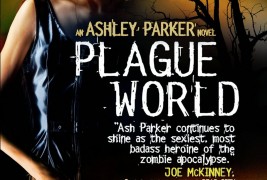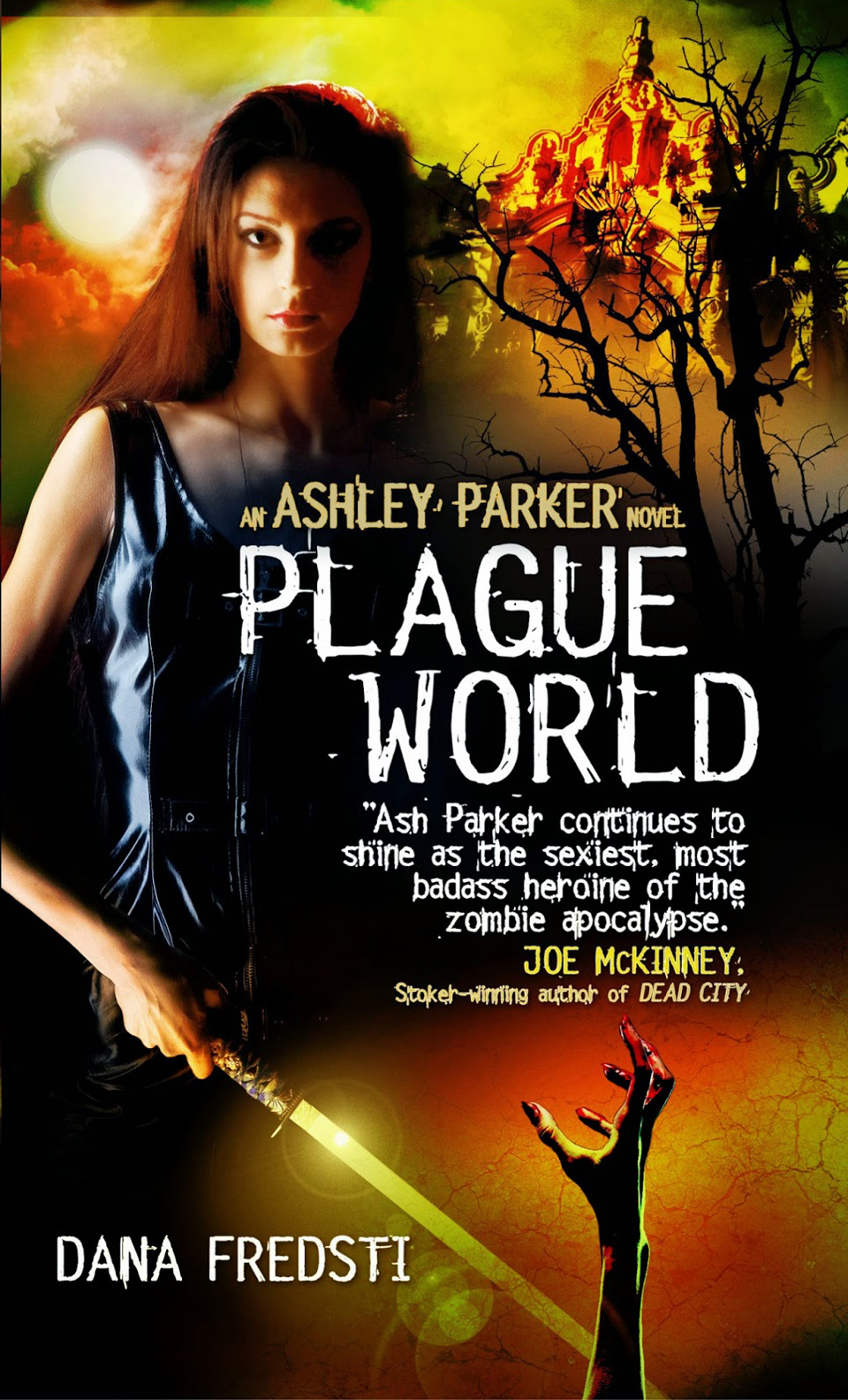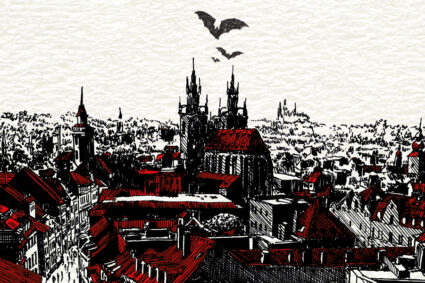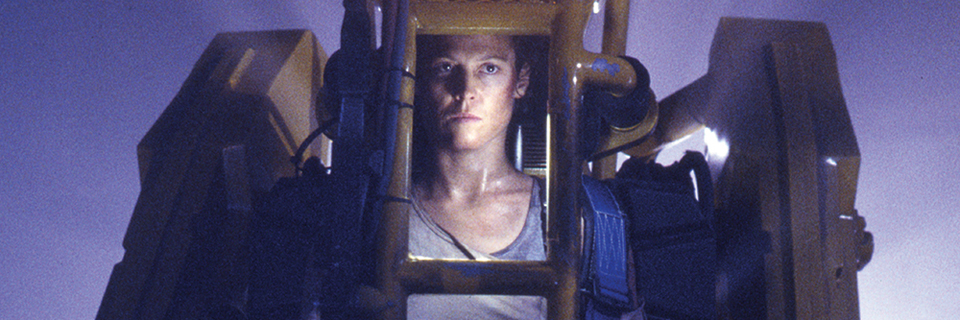
Trilogies are supposed to end on an up-note, right? Like, with a musical feast and dancing Ewoks and happy ghost-friends and family. I mean, the middle chapters are the ones where things happen like Luke getting his hand light-sabered off and finding out that the bad guy in black is actually called “Dad.” You know, dark times. The emotional arc of a trilogy is supposed to be shaped like a smile. We start high, then we descend into the depths of despair and after we come out the other side, we ascend back up. But what if a trilogy just keeps tumbling us down into darkness?
Plague World: An Ashley Parker Novel is the third book in author Dana Fredsti’s Plague trilogy (Titan Books) following Plague Town and Plague Nation. These books depict the titular character—Ashley Parker—as a member of an eclectic group of specialists trying to save the world from the zombie apocalypse.
Ashley starts out as a divorced 28-year-old college student attending classes at Redwood Grove in northern California when a zombie outbreak goes down and she’s bitten. Rather than die and come back to “life” as a ravenous shambling bag of rot, she ends up a “wild card”—someone with immunity to the zombie virus whose senses, strength, and speed are actually enhanced upon contracting it. Yahtzee!
She’s soon introduced to other wild cards as well as the existence of a clandestine group called DZN—a centuries-old organization whose mission is to quell and then cover up zombie outbreaks. The current iteration of the DZN is largely comprised of scientists, military personnel, and wild cards. At Redwood Grove, DZN members include Dr. Fraser—a professor of “Pandemics in History” during her Clark Kent hours—and her teaching assistant Gabriel.
As Ashley, Dr. Fraser, Gabriel and the other wild cards try to isolate the zombie outbreak in Redwood Grove, Ash and Gabriel are smitten with the love bug. And, really, who wouldn’t be in the mood for a little romance in that atmosphere? Black bile? Rotten flesh? Oh, Baby!
The second book, Plague Nation, reveals that the containment mission was a failure and the zombie virus is spreading across the U.S. Dr. Albert—a DZN scientist—is sequestered in a lab on the Redwood Grove campus, trying to develop a cure as Ash and the others hold the hungry corpses at bay. Meanwhile, we learn that Gabriel has another, even rarer form of zombie immunity requiring that he consume human flesh to prevent him from rotting from the inside out. To avoid indulging this hunger, he’s administered a serum that seems to work, but it’s in short supply, adding even more urgency to Dr. Albert’s quest for the cure.
Just as things are looking up, someone sets fire to the lab and our heroes are forced to retreat to a facility in San Francisco—the closest place equipped to set up a new DZN lab. This apparent sabotage not only puts Ash’s beau Gabriel’s life at risk, but that of the entire world. Someone from the DZN is working against them. But who and why?
This brings us to Plague World. Once in San Francisco, things go terribly wrong as the group gets ambushed. Both Dr. Albert and Gabriel are kidnapped and there are casualties in the collateral damage. Moreover, the zombie virus has mutated into an airborne pathogen and it has spread across the entire planet. It’s now clear that not only was sabotaging the cure an inside job, but so too was the plague itself and that Ashley is being specifically targeted by those responsible.
Plague World depicts Ashley and the surviving wild cards making their way from San Francisco to San Diego to rescue Dr. Albert and Gabriel from whomever is behind this apocalyptic plot. To complicate matters—and that’s probably a mild under statement—the entire planet is completely overrun by zombies. Bleak? Yes.
The number of characters we focus on this time around is more manageable than it was in the previous book. They include Ashley and Dr. Fraser as well as Lil—an 18-year-old Redwood Grove college freshman and townie whose mother is unaccounted for in the wake of the pandemic and who relies on psychotropic drugs to control her manic depression, Gentry—a soldier-turned-wild card in his mid-20s, Tony—a teenaged punk gamer-turned wild card, Nathan—a middle-aged survivalist with a military background and a long, mysterious, and somewhat steamy history with Dr. Fraser, JT—a mortal human who’s ostensibly a wild card by virtue of his incredible athleticism and expertise as a free-runner, and Griff—a smarmy, rapey douchebag wild card who had been at the DZN lab in San Francisco when Ash and the others arrived.
Fredsti’s Plague books are often described as Buffy meets The Walking Dead and that’s pretty accurate given Ashley’s propensity for witty vulgarity and funny pop culture references. She’s an extremely likable character, so much so that it allows us to overlook some of the more difficult-to-swallow plot points. However, Plague World’s Ashley is a much colder version of the character; though, it’s a necessary evolution of her arc, given the dire circumstances she’s in. Now, her smartass quips and references are juxtaposed against real pain, fear, and loss. That is, Ashley’s sense of humor is largely used ironically and in a way that makes clear the magnitude of her sorrow and anxiety.
Where Plague Town entertains us through world-building and introducing us to its characters and Plague Nation raises the stakes and broadens the scope of the scenario, Plague World begins in the aftermath of tragedy and the trajectory continues on that vector. The book hits the ground at a sprint and as is usually the case with the zombie subgenre, living people pose more of a threat than the walking corpses do. Ashley is confronted with aggressive sexual advances from one of her own teammates early on and betrayal by others later on, and all the while the world is nearing its end. There are few opportunities for levity and when they come, they provide a stunning contrast that sharpens the focus on how bad things are for our protagonists. This is a dark book and Fredsti deserves credit for being brave enough to see it through.
Once we arrive in San Diego, the culmination of Plague World is a deeply disturbing nightmare that’s legitimately terrifying and difficult to experience from a reader’s perspective. For three books we’ve experienced this world as Ashley Parker and here Ashley’s hit rock-bottom in every way possible. And that process yields a resolution that’s packed full of small reveals, each a twist illuminating the enormous conspiracy behind the zombie apocalypse. And while some of these resolving passages come very close at times to reading like the end of a Scooby Doo episode (wherein a series of unmaskings reveals that the phantom is really just old man Withers and he would’ve gotten away with it…you know the rest) and employ moderate doses of deus ex machina, Fredsti does what she’s managed to do all series long: She uses her deft characterization to compel our hero to react in ways that make these plot devices work, to make them believable. When something seems straight out of a Michael Bay movie, Ashley notices it and we believe her. It’s a thing to behold.
Plague World is an exercise in contradictions and it works really well precisely because of that fact. It’s an over-the-top idea featuring a smartass protagonist and it elicits profoundly painful emotions with poignant prose as it takes us to some of the darkest, most uncomfortable places one can visit via the escapism of reading fiction. It shouldn’t work like this and yet it does fantastically. And above all else, Plague World manages to wrap up the trilogy in a satisfying way. And given the nature of the story’s conflict, the mystery has been solved, but the zombies rampage forth. This has allow Fredsti to close the door enough to give us some finality, yet leave it open a crack so that she—and by extension, we—can visit these characters again in the future. It’s an ingenious mechanism that’s built in to the very idea of these books.
Dana Fredsti is a brave author. Happy dancing Ewoks be damned.















